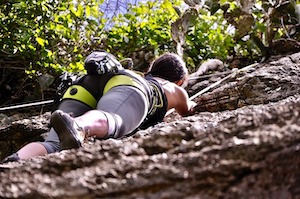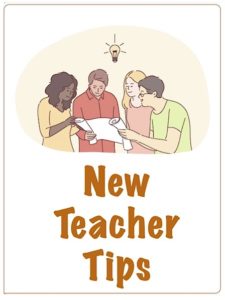Now It’s Time to Rest, Rejuvenate & Renovate
A MiddleWeb Blog
 A Well-Earned Break
A Well-Earned Break
This week a local club soccer team that I coach had its final tournament and matches of the season. It’s been a grueling five months of training, competition, injuries, and other ups and downs. I can safely say that all of my players are ready for a well-earned break.
How they spend their time in the off-season, however, has a tremendous impact on our likelihood of success in the upcoming fall season. It’s imperative that each individual strikes a balance between resting, recovering, and improving their skills.
Whether you are an athlete or an educator, it’s critical to take full advantage of the summer break. Spending time rejuvenating, reflecting, and honing our craft enhances our effectiveness and boosts our capacity to serve students.
Productive Rest
Teachers’ daily regimes are highly stressful, emotionally demanding, and taxing on the brain’s executive functioning (Taylor, Roberts, & Zarrett, 2021). As a result, summertime can feel a bit ‘alien’ to educators due to the relaxed pace and large, unstructured blocks of time.
The trick is to find just the right balance of relaxation and productivity to engage in ‘productive rest’ in the months/weeks leading up to the start of the next school year. For example…

► Catching up on rest and reestablishing good eating/exercise habits (as well as planning for maintaining good habits during the school year)
► Experimenting with a few digital tools that you didn’t have time for during the school year
► Developing stress reduction skills such as basic mindfulness, breathing techniques, and emotion regulation (Maricuţoiu et al. 2016).
‘Productive rest’ means taking time to cultivate the types of skills and habits that equip us to effectively face and weather the challenges of the upcoming school year in healthy, practical ways.
Unforced Professional Development
Sometimes we get so busy teaching that we just don’t have time to learn. The off-season is a perfect time for educators to deepen their understanding, enhance their skills, and stay updated with the latest educational practices.
In contrast to book/curriculum studies assigned by district and building personnel, teachers can pursue topics of their own choosing in ‘unforced’ professional development. Ideas for unforced PD include…
► Listening to education podcasts and videos such as TED Education, Cult of Pedagogy, and Trending in Education. Ask your up-to-date colleagues what they are listening to and give it a whirl. Podcasts in particular (check out these eight teacher-recommended ones) can provide rich insights on how to improve our practice, teaching methodology, subject-matter knowledge, and classroom management.
► Conducting informal online research. You don’t have to have a PhD to peruse educational websites, databases, and journals to pursue topics of interest. Some of my favorites sites for staying informed about current education research and innovations in education include Edutopia, The National Center for Education Research, EdWeek, ASCD, and of course…MiddleWeb.
► Book studies and book clubs. Whether you prefer to read independently or share the experience with other educators, each of us can pick through the education bestsellers or MiddleWeb reviews (written BY educators) and find a few titles to digest over the break. Clubs? Personally, I have found that I benefit greatly from the accountability of meeting regularly with other individuals over a favorite beverage to discuss and share insights gleaned.
► Free webinars, or short, web-based seminars. Webinars allow educators to share expertise, resources, ideas, and questions on educational topics in real time…or simply view as an archived video later on. A handful of my favorite webinar-caches for gleaning wisdom include those available from Marzano Resources, Education Week, Corwin On-Demand, and NNSTOY.
Reflection and Renovation
Summer is also an excellent time to reflect and improve upon our curriculum and classroom practices. Doing so allows us to evaluate what is working, identify areas for improvement, and make strategic renovations for the upcoming school year. Educators can make vast improvements in our approach by…

► Revising and planning curriculum. Use formative and summative assessment results, work samples, and whatever other data you can get your hands on to identify where students struggled academically and/or with engagement. Map out and develop improved learning tasks, topics, assessments, and rubrics.
► Set and reflect on personal growth/goals. Much like our students, we make more progress when we identify, plan for, and work towards specific areas we are seeking to improve in. These could include elements such as classroom management, engaging students, building rapport with students and their families, presenting at a professional development conference or pursuing an advanced degree/certification.
Summer break presents the opportunity for rest, rejuvenation, and renovation. As educators, we can take a lesson from sports by using the current months to balance recuperation and skill development…both of which are crucial to success in the upcoming season or school year.
For us, the break offers a chance to engage in productive rest, unforced professional development, reflection, and renovation of curriculum and classroom practices. When we make the most of the break, we set ourselves – and our students – up for success.
Works Cited
Maricuţoiu, L. P., Sava, F. A., & Butta, O. (2016). The effectiveness of controlled interventions on employees’ burnout: A meta-analysis. Journal of Occupational and Organizational Psychology, 89(1), 1-27.
Taylor, S. G., Roberts, A. M., & Zarrett, N. (2021). A brief mindfulness-based intervention (bMBI) to reduce teacher stress and burnout. Teaching and Teacher Education, 100, 103284.
Feature mage by Capucine from Pixabay
Woman climber image by Erika Marcial from Pixabay
Man at computer image by Lukas Bieri from Pixabay































